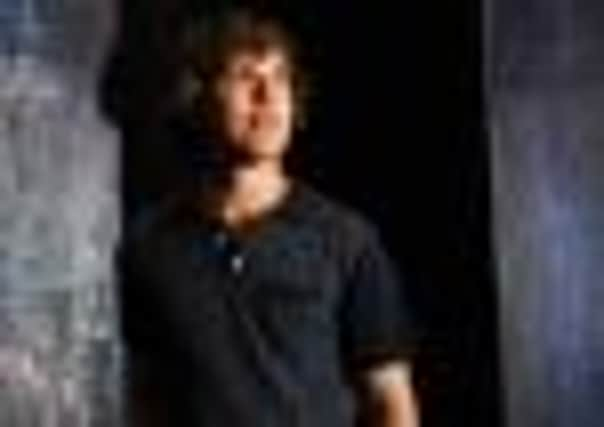Fresh new take on opera’s famous lothario


He may have a disarming, sweet nature, but this belies the fact that director Alessandro Talevi is returning to Opera North with the reputation of an enfant terrible.
“I’ve never really thought about myself like that,” he grins. “But then if you do start thinking of yourself in those terms, you really stop being an enfant terrible.”
Advertisement
Hide AdAdvertisement
Hide AdIt’s a likely tag for a director aged 37, particularly one who looks years younger. It’s also an inevitable tag for a director who has, by his own admission, shocked audiences in the past.


Audiences arriving for tonight’s season-launching Don Giovanni at Leeds Grand Theatre probably don’t know quite what to expect. Neither does Alessandro.
“I have no idea whether people will be shocked or not, but we’ve certainly played to the bawdy side of the production – it is a bit rude at times,” says the young director.
“There’s no nudity, I can’t stand nudity for the sake of it, though we have sex. Is it tasteful sex? No, it isn’t. But then this production isn’t about good taste, in fact there’s quite a rough, street element to it. Besides, I don’t think people are shocked by nudity, unless, of course, you’re actually putting porn on stage.”
Advertisement
Hide AdAdvertisement
Hide AdFortunately the latest interpretation of Mozart’s most schizophrenic work stops short of becoming quite so lewd. But under South African-born Alessandro it still promises to be bold, particularly when it comes to exploring the opera’s extremes of light and shade.
“It’s a dangerous piece which requires a dangerous response,” he says. “Compared to the likes of The Marriage of Figaro or Cosi fan Tutte this was Mozart’s difficult middle child. For that reason you can’t really play it straight, you really need to take it by the balls.
“It’s like Napoleon or Hitler trying to invade Russia – you have to go all out or it ends up overwhelming you.
“You definitely have to take risks with it, otherwise, with a 21st-century audience, it just falls flat.”
Advertisement
Hide AdAdvertisement
Hide AdSuch simmering language stems from the fact that Don Giovanni is known in the operatic world, with good reason, as “The Director’s Graveyard”.
The tale of a serial seducer unscrupulously working his way through thousands of women offers enormous scope to blend comedy and tragedy, but get the wrong blend and it offers just the right amount of rope for a spectacular hanging.
Alessandro’s response is to strike a strong balance between humour and pathos. He believes placing too strong an emphasis on the latter has often been the downfall of previous productions. To that end the creative team have devised a compact, simple set, devoid of furniture which is quick and easy to adapt. Maintaining speed, the director says, is essential to maintaining the wit of the opera.
And his “take” on Don Giovanni (“Every director is expected to have a ‘take’ on a piece these days,” he says) involves making our lothario something of a time traveller, jumping from century to century in pursuit of his carnal conquests.
Advertisement
Hide AdAdvertisement
Hide AdThis is brave indeed, so did Opera North have any reservations about a time- travelling Don Giovanni?
“Only in terms of budget,” he laughs. “What’s great about Opera North is they do give you a lot of artistic freedom. Alarm bells always ring when a company immediately ask you what your concept will be for an opera before you’ve even agreed to do it.
“With this company they’re great for letting you go off and allow the ideas to gestate then present them a long way down the line. That’s why I’ve always wanted to work with them.”
Opera North also have some idea of what to expect from the director. Two years ago he presented his version of Britten’s The Turn of the Screw at The Grand and it obviously impressed the company, even if it did receive mixed reviews at the time.
Advertisement
Hide AdAdvertisement
Hide Ad“I try not to read reviews for several months,” he says. “Producing an opera is like giving birth and you don’t want to hear what critics are saying about your baby straight away – it’s just too raw at the time.”
But he doesn’t have to rely on favourable coverage. He’s already proved himself in the opera world, initially as a prizewinner at the 2007 European Opera-Directing Prize in Wiesbaden for his concept of Rusalka and later with Pelléas et Mélisande at Sadler’s Wells which was a shortlist nomination for the 2008 Royal Philharmonic Society awards.
All of which is quite a feat given that he only started to pursue opera directing eight years ago. He was bitten by the bug as a pianist at the Royal Academy of Music, where he was recently made an associate.
But as well as giving him confidence, he knows that such lauding heightens the weight of expectation for a young director.
Advertisement
Hide AdAdvertisement
Hide Ad“Being described as one of the ‘young directors’ does add a level of pressure,” he says. “Being young they expect you do something really challenging as well.”
Key notes of a strong cast
The cast for the season opener is a strong one for the company.
William Dazeley and Alastair Miles head an ensemble that includes young British soprano Meeta Raval, finalist in the BBC Cardiff Singer of the World competition in 2011.
Meeta sings her first Donna Anna, having recently made her company debut as Ortlinde (Die Walkure, 2012).
Advertisement
Hide AdAdvertisement
Hide AdElizabeth Atherton (Micaela, Carmen 2011; Governess, The Turn of the Screw 2010) is Donna Elvira, while Claire Wild performs Zerlina.
Tomorrow and October 5, 12, 17, 20, 26 and Nov 1, Leeds Grand Theatre, tickets 0844 8482700.